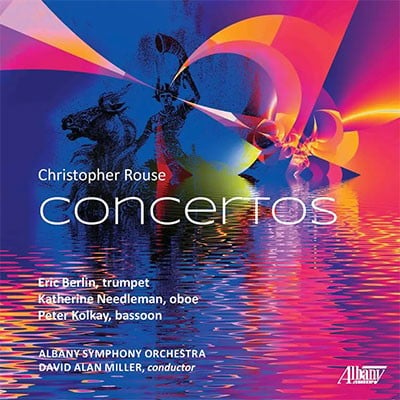3(III=picc).3.3.3(III=dbn)-4.3.3.1-timp.perc(3)-harp-strings
Abbreviations (PDF)
Boosey & Hawkes (Hendon Music)
Commissioned by the Chicago Symphony Orchestra for its principal trumpeter, Christopher Martin, Heimdall’s Trumpet was completed in Baltimore, Maryland on January 21, 2012. The title of the work refers to the Nordic god Heimdall, whose blasts on his trumpet announce the onset of Ragnarok, the Norse equivalent of Armageddon.
Cast in four movements, the title of the piece refers properly to the finale, which attempts in a general way to depict these mythological events as I imagine them. The onset of Ragnarok occurs only at the very end of the work, in a very short orchestral fortissimo outburst followed by an extended silence. The first movement is declamatory in nature and gives way to a whirlwind scherzo that utilizes a variety of mutes for both the soloist and the orchestral brass section. The third movement is a largo that swings like a pendulum between sections of substantive dissonance and straightforward consonance. The aforementioned finale, more specifically dramatic and programmatic in nature, returns to the more aggressive world of the first movement.
The solo trumpet part requires much of the player, who must possess enormous technical prowess, including the ability to produce pedal tones at some length.
Heimdall’s Trumpet calls for an orchestra consisting of three flutes (third doubling piccolo), three oboes, three clarinets, three bassoons (third doubling contrabassoon), four horns, three trumpets, three trombones, tuba, harp, timpani, percussion (three players), and strings. It lasts approximately twenty-two minutes.
— Christopher Rouse
Reproduction Rights:
This program note may be reproduced free of charge in concert programs with a credit to the composer.
"...the 20-minute concerto was a deftly paced ride to the edge of the abyss... there seems to be emotional reason behind every note... this musical journey is taking us somewhere we want to go."
Musical America

Eric Berlin, trumpet /
Albany Symphony Orchestra /
David Alan Miller
Albany TROY1979

